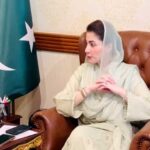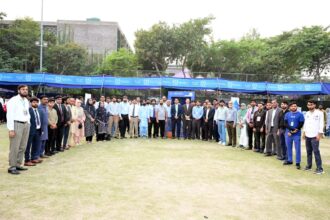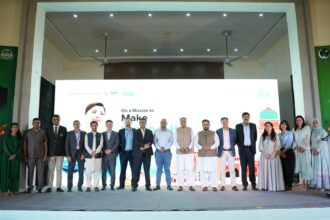The state of education in Pakistan is undoubtedly in crisis, with an estimated 95% of school-age children either out of school or receiving substandard education. While the plight of the majority is rightly the focus of reforms, it is crucial to also examine the education of the remaining 5% – approximately 3 million children – who have access to high-quality institutions. The choices and character of this privileged minority will significantly shape the country’s future in the coming decades.
The current education of the privileged in Pakistan appears to be primarily driven by economic goals, with the aim of securing lucrative jobs, either domestically or abroad. This approach risks creating an “elite of leisure,” as described by Kenyan philosopher Ali Mazrui, who minimizes social commitment and pursues a life of comfort without worrying about the wider societal impact.
To transform this privileged group into an “elite of labor” – one that provides effective leadership and sets an example of hard work – a fundamental shift in the education system is required. This should begin with a steadfast commitment to providing a rigorous, high-quality education in the sciences, mathematics, arts, and literature. However, this academic rigor must be coupled with a focus on equity, emancipation, and the critical examination of social, economic, and political structures.
For instance, the teaching of economics should delve into the causes of wealth inequality and its link to political power. Technology education should explore the moral and social implications of technological advancements. Literature curricula should expand beyond the traditional canon to include the voices of the dispossessed and marginalized. These efforts can nurture empathy and help students understand that individual success or failure is often shaped by broader social structures and moral luck, rather than solely individual merit.
Cultivating critical thinking skills through the study of philosophy and history is also crucial, as these disciplines enable students to question the premises of knowledge claims and gain a cognitive distance from the present, allowing for its critical interrogation. Developing excellent communication skills, physical health and fitness, and the ability to focus and memorize are equally important in shaping a responsible and engaged elite.
The biggest obstacle to such an education for the privileged is the fear of power-sharing and the perception that the advancement of others might come at the expense of one’s own children. However, this view is misguided, as societies with greater equity and distribution of resources tend to have a higher quality of life for all. Privilege brings responsibility, and the education of the privileged should aim to create an elite that works for the betterment of the wider society, not against it.






